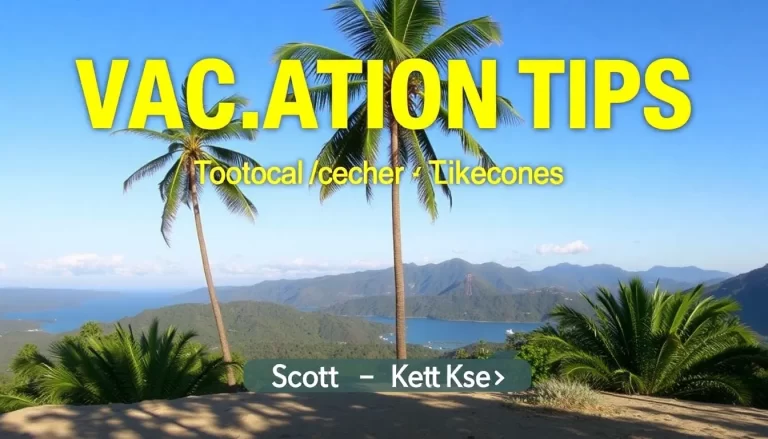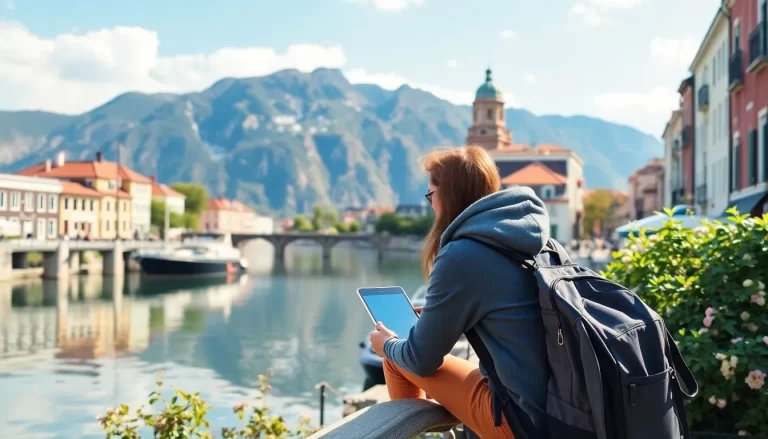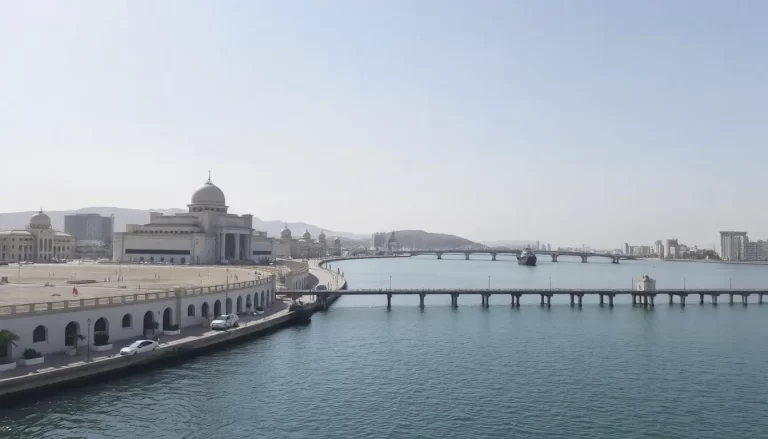As the world opens up to travel once again, many destinations are grappling with the effects of overtourism. What was once a pristine paradise can quickly become a chaotic hotspot overwhelmed by visitors. Understanding the impact of tourism on these beloved locales is crucial for travelers who wish to explore responsibly.
In conversations with fellow travel writers, the philosophical dilemma emerges: are we contributing to the degradation of the places we cherish by simply sharing them with others? This question begs a deeper exploration into the phenomenon of overtourism and its consequences.
Understanding overtourism: What does it mean?
Overtourism occurs when the number of visitors to a destination surpasses its capacity to manage them sustainably. This can lead to environmental degradation, cultural erosion, and a diminished quality of life for local residents. While tourism can bring economic benefits, unchecked growth often results in negative repercussions.
This phenomenon is not limited to any specific region; it has affected iconic cities and serene villages alike. The challenge is to find a balance between welcoming visitors and preserving the unique charm of each location.
Factors contributing to overtourism
Several elements contribute to the rise of overtourism in popular destinations:
- Social Media Influence: Platforms like Instagram and TikTok can catalyze interest in lesser-known spots, leading to sudden spikes in visitor numbers.
- Affordable Travel Options: Budget airlines and low-cost accommodation options have made travel accessible to a broader audience, resulting in more tourists flocking to popular destinations.
- Lack of Regulation: In many regions, there are insufficient regulations regarding tourism development, leading to unchecked growth and environmental damage.
- Cultural Events and Festivals: Special events can draw large crowds, overwhelming local infrastructure.
- Globalization: As cultures become homogenized, travelers often seek familiar experiences rather than authentic local interactions, exacerbating the strain on destinations.
Examples of overtourism in action
Some destinations have become synonymous with overtourism, showcasing the urgent need for sustainable practices:
- Venice, Italy: Once a romantic getaway, Venice now struggles with millions of visitors annually, leading to overcrowded streets and damage to its fragile ecosystem.
- Barcelona, Spain: This vibrant city has seen a dramatic increase in tourist numbers, resulting in tension between locals and visitors, with many residents feeling displaced.
- Santorini, Greece: The picturesque island has become a victim of its own beauty, with overdevelopment leading to environmental concerns and a decline in local quality of life.
- Kyoto, Japan: Known for its historical significance, Kyoto faces challenges in preserving its cultural heritage amidst rising tourist traffic.
Impacts of tourism on local environments
The environmental consequences of tourism can be profound and far-reaching. Here are several ways in which tourism can negatively affect local ecosystems:
- Habitat Destruction: Construction of hotels and facilities can lead to the destruction of natural habitats for wildlife.
- Pollution: Increased waste from tourists can overwhelm local waste management systems, leading to pollution of air, water, and land.
- Resource Depletion: High tourist numbers can strain local resources such as water and energy, often leading to shortages for residents.
- Wildlife Disturbance: Tourists can disturb local wildlife, leading to changes in animal behavior and even extinction of some species.
- Cultural Erosion: As local customs adapt to cater to tourists, there can be a loss of cultural identity and authenticity.
Ruin tourism: The darker side of travel
Ruin tourism refers to visiting locations that have suffered extensive damage or decline, often due to tourism itself. This concept raises ethical questions about the motivations behind such visits and the impact they have on the places being visited.
Tourists may flock to areas affected by disasters, conflicts, or economic decline, often treating these locations as mere photo opportunities rather than acknowledging the deeper stories and struggles faced by locals. This practice can further exacerbate the suffering of communities already grappling with the consequences of trauma.
Overtourism in Spain: A case study
Spain has become a focal point for discussions surrounding overtourism. Cities like Barcelona and Madrid struggle with the influx of visitors, which has led to local backlash and calls for more sustainable practices. The government has begun implementing measures to mitigate these issues, such as limits on new accommodations and initiatives to promote lesser-known regions of the country.
For example, the Balearic Islands have introduced a tax on tourists, directing funds towards environmental protection and sustainable tourism initiatives. This is a step towards ensuring that both the economy and the environment can thrive side by side.
Strategies for responsible tourism
Travelers can take proactive steps to minimize their impact on the destinations they visit. Here are some tips for responsible tourism:
- Research Before You Go: Understand the cultural norms and environmental issues of your destination.
- Choose Eco-Friendly Accommodations: Support hotels and lodgings that prioritize sustainability.
- Travel Off-Peak: Visit during less busy times to reduce overcrowding.
- Engage in Local Experiences: Seek out authentic cultural experiences that benefit the local community.
- Respect Natural Landscapes: Follow guidelines to protect the environment, such as staying on marked trails.
The power of collective action
The responsibility for sustainable travel does not lie solely with the individual. Tourists, businesses, and governments must work together to create a more sustainable tourism model. This includes:
- Community Involvement: Engaging local communities in tourism planning ensures that their voices are heard and respected.
- Regulatory Frameworks: Governments should enforce regulations that protect both the environment and local cultures.
- Education and Awareness: Raising awareness about the impacts of tourism can foster more responsible behaviors among travelers.
Ultimately, the way we engage with the world as travelers can shape the future of destinations. By making thoughtful choices and supporting sustainable practices, we can preserve the beauty and integrity of the places we love to explore. Remember, it’s not just about the volume of travel; it’s about how we travel.







